Thursday June 6 2024, 5:00 pm (CET)
Despite the richer insights that single-cell multi-omics can offer over conventional techniques such as PCR and bulk next-generation sequencing, including characterizing the clonality of heterogeneous cancer cells and changes driving therapy resistance or assessing genome editing outcomes, the costs for sample analysis can be a barrier to adoption for many labs.
To help address this, Mission Bio has recently launched new sample multiplexing features that allow the pooling of multiple samples into a single run on the Tapestri Platform, improving the throughput and productivity, and thereby reducing the per-sample costs for single-cell DNA and protein multi-omic analysis by up to 60%*.
In this educational webinar, we’ll discuss two novel multiplexing approaches available on Tapestri, Antibody Hashing and Genotype Multiplexing. We’ll explore how they enable increased efficiency and versatility while maintaining the same robust performance metrics such as sensitivity and specificity. We’ll also share real-world case studies from labs that are applying multiplexing approaches in disease modeling, CRISPR-editing, and hemato-oncology applications.
Wednesday May 29 2024, 4:00 pm (CET)
Infant and adult MLL1/KMT2A-rearranged (MLLr) leukemia represents a disease with a dismal prognosis. Here, we characterized early proteomic events of MLL::ENL-mediated transformation in fetal and adult blood progenitors and reveal that whereas adult pre-leukemic cells are mainly characterized by retained myeloid features and downregulation of ribosomal and metabolic proteins, expression of MLL::ENL in fetal lymphomyeloid multipotent progenitors (LMPPs) leads to enrichment of translation-associated and histone deacetylases signaling proteins, and decreased expression of inflammation and myeloid differentiation proteins. Integrating the proteome of pre-leukemic cells with their secretome and the proteomic composition of the extracellular environment of normal progenitors highlights ligand-receptor interactions with differential regulation upon initiation of fetal- and adult-origin leukemia. We show that these interactions have implications for human MLLr leukemia cells’ ability to communicate with their environment through granule proteins. Our study has uncovered opportunities for targeting ontogeny-specific proteomic vulnerabilities in in utero-initiated and adult-onset MLLr leukemia.
Wednesday April 24 2024, 4:00 pm (CET)
Improving coverage, robustness and sensitivity is crucial for routine phosphoproteomics analysis by single-shot liquid chromatography tandem mass spectrometry (LC-MS/MS) from minimal peptide inputs. The presentation focuses on our systematic optimization of key experimental parameters for automated on-beads phosphoproteomics sample preparation with focus on low input samples, pinpointing critical variables influencing the resulting phosphoproteome. Furthermore, we evaluated how sequential enrichment can boost phosphoproteome coverage and show that pooling fractions into a single LC-MS/MS analysis can increase the depth. The presentation also includes an alternative phosphopeptide enrichment strategy based on stepwise addition of beads thereby boosting phosphoproteome coverage. Our optimized phosphoproteomics pipeline can be translated to the newest generation of mass spectrometers, such as the Orbitrap Astral, increasing the phosphopeptide coverage by 2-fold, allowing for deep phosphoproteomics analysis without the need to scale up the starting cell amounts.
Wednesday April 3 2024, 4:00 pm (CET)
Proteins are the primary targets of almost all small molecule drugs. Nonetheless, even drugs designed with high specificity may interact with multiple proteins that are not initially targeted. Discovering these potential interactions is crucial for the development and repurposing of drugs. Current state-of-the-art proteomics methodologies enable screening of thousands of proteins against a limited number of drug molecules. Here we report the development of a label-free quantitative proteomics approach that enables proteome-wide screening of small organic molecules in a scalable, reproducible, and rapid manner by streamlining the proteome integral solubility alteration (PISA) assay.
Wednesday Nov 8 2023 5 pm (CET)
Soluble HLA (sHLA) peptides are thought to have great potential as biomarkers for different diseases such as cancer. However, efficient enrichment of sHLA peptides from body fluids like plasma has been a bottleneck, requiring 3-5 ml per patient. Here we present IMBAS-MS, an automated magnetic bead based workflow for the efficient enrichment of HLA protein peptide complexes.
The core of IMBAS-MS is the combination of biotinylated antibodies captured by streptavidin magnetic beads allowing for an automated one pot enrichment from only 200 µl plasma.
In combination with Whisper low-flow gradients, data-independent acquisition (DIA) and computational library-based analysis we acquire deep immunopeptidomes from single measurements, elucidating its origins.
Tuesday Oct 31 2023 3 pm (CET)
Our guest speaker for the series will be Stephen MacDonald, CPD assessor and a Principal Clinical Scientist at Cambridge University Hospitals NHS Foundation Trust.
In the first of the three sessions, we will introduce commonly used statistical methods, terms and concepts. Topics will include statistical summaries such as mean, variance, standard deviation and coefficient of variation.
We will draw the distinction between imprecision and bias, and how both contribute to the quality of our results.
We will learn how statistics are used and what other calculations they feed into, including total error and measurement uncertainty. Using practical examples and case studies to illustrate the concepts discussed we can understand how to apply these statistical principles in your daily laboratory operations.
By the end of this session, participants will:
Whether you are a seasoned professional or new to the field, this session will provide valuable insights and practical knowledge that can be immediately applied in your workplace.
About Stephen MacDonald
Stephen MacDonald is a Principal Clinical Scientist in the field of Specialist Hemostasis working at Cambridge University Hospitals NHS Foundation Trust.
Stephen has a keen interest in the statistical assessment of laboratory assay performance and clinical trials. He has focused on determination of uncertainty of measurement in Specialist Hemostasis assays and in developing models to best describe their performance.
This has led Stephen to participating in National Advisory boards for numerous aspects of Laboratory Hemostasis as well as publishing a range of journal articles in The Journal of Laboratory and Precision Medicine and the International Journal of Laboratory Hematology.
Wednesday Oct 18 2023 5 pm (CEST)
Multiple myeloma is a complex form of plasma cell cancer that is currently untreatable. There are approximately 200,000 new diagnoses each year globally, with a 100% relapse rate and 54% five-year overall survival rate. In spite of significant advancements in treating blood-related cancers, these diseases continue to be a substantial cause of illness and death worldwide.
In this webinar, Dr. Todd Druley, MD, Ph.D., Chief Medical Officer of Mission Bio, and Co-Founder and Chief Technology Officer Dr. Adam Sciambi, Ph.D., will:
• Discuss the clinical impact and horizon of multiple myeloma therapies
• Present a novel approach to multiple myeloma therapeutic development by correlating SNVs, CNVs, and surface epitopes for clonal profiling
• Share clinical data generated by researchers from The Cancer Research Center of Toulouse IUCT-Oncopole and Genentech
Tuesday Oct 10 2023 3 pm (CEST)
Quantitative determination of placental growth factor (PlGF) and soluble fms-like tyrosine kinase-1 (sFlt-1) in human serum and plasma
This webinar will focus on Pre-Eclampsia and improving clinical pathways with PkGF / sFlt-1, including a brief introduction of Pre-eclampsia and insight into the inclusion of biomarkers sFlt-1 & PlGF.
We will be joined by Professor Tim James, Laboratory Manager and Head BioMedical Scientist in Clinical BioChemistry at Oxford University Hospitals.
Professor James will be discussing his own experiences from Oxford to provide insight, advice and guidance to highlight the clinical significance and favourable outcomes of sFlt-1 & PlGF.
Professor Tim James is Laboratory Manager and Head Biomedical Scientist in Clinical Biochemistry at Oxford University Hospitals NHS Foundation Trust, a post he has held for over 20 years.
Within this role he manages three laboratory sites including a large teaching hospital service. Working with clinical departments to better understand testing and to ensure optimal utilisation is a key aim of the service. He has worked with many clinical teams to evaluate current testing and where possible introduce new diagnostics where there are clear benefits for patients.
He has published over 120 peer reviewed papers in all areas of clinical chemistry and in the last ten years developed a strong collaboration with the Oxford Obstetric team which has led to a series of publications encompassing diagnosis of pre-eclampsia, developing pregnancy specific reference intervals and identifying newer markers of obstetric disease.
Tuesday June 13 2023 4 pm (CEST)
Join us at Randox Webinar: Quality Control in Laboratory Diagnostics – Practical Guidance in Troubleshooting.
We will be hosting the second webinar in our series with Dr Mairiead MacLennan on 13th June 2023 at 3PM (BST).
Dr Mairiead MacLennan manages a diagnostic laboratory in the United Kingdom with over over 40 years multidisciplinary experience, focused on Quality and Training and will be discussing her own experiences to provide insight, advice and guidance
The second webinar will focus on:
Dr Mairiead MacLennan is a registered HCPC Biomedical Scientist with over 40 years multidisciplinary diagnostic laboratory experience in both NHS and Veterinary medicine specialising in Quality and Training.
If you cannot attend, please fill out the registration form and we will send you a full recording post webinar!
Thursday Mar 30, 2023 05:00 PM (CEST)
Breast cancer is the most diagnosed cancer in the world. Clinically, receptor status and lymph node involvement are essential to stratify patients in different treatment groups. Moreover, molecular subtyping of breast tumours further assists in providing information about prognosis and treatment response. However, complications such as overtreatment, overdiagnosis and late recurrence are still a reality. Therefore, improvements in personalised medicine for better stratification and tailoring of treatment are a necessity. Since proteins are more closely related to phenotype, and information such as post-translational modifications affect protein activity, the use of proteins as biomarkers is of interest. In label-free mass spectrometry (MS)-based proteomics, different acquisition strategies can be used, namely data dependent acquisition (DDA) and data independent acquisition (DIA). Here, we establish a new semi-automated bead-based workflow for high-throughput processing of clinical samples, and further evaluate different acquisition methods. We then investigate the potential use of proteome data in comparison with already available matched transcriptome data in the context of personalised medicine and biomarker discovery.
Thursday Feb 23, 2023 11:00 AM in Eastern Time (US and Canada)
Genome-wide bulk sequencing is widely used to assess DNA methylation (DNAm). However, methylation signals obtained from bulk sequencing are averaged out, concealing the cell-to-cell differences in methylation signatures involved in health and disease. Single-cell methods such as bisulfite sequencing were developed to reveal these signatures and offer insights into cellular heterogeneity and rare cell types. However, genome-wide DNAm profiling at single-cell resolution has drawbacks such as sparse data and limited genomic coverage even for deeply sequenced samples.
To address this gap, the Renée Beekman Lab and the Lars Velten Lab of the Centre for Genomic Regulation (CRG) in Barcelona teamed up to develop a novel high-throughput, high-confidence targeted bisulfite-free method for analyzing DNAm in single cells, now published in Genome Biology.
In this webinar, authors Michael Scherer, Ph.D. and Agostina Bianchi of CRG will present the Single-Cell Targeted Analysis of the Methylome (scTAM-seq) protocol which profiles 650 biologically relevant CpGs in up to 10,000 cells using the Tapestri platform. They will also share how they combined DNAm (epigenetics), somatic mutations (genotype), and surface marker expression (phenotype) to gain a rich picture of clonal architecture and dynamics across B cell differentiation in blood and bone marrow.
Thursday December 15, 2:00 pm ET (8:00 pm CET)
Cell-mediated immunotherapies are an emerging modality that can revolutionize cancer research as well as the study of the immune system. However, establishing standardization and scalability for necessary bioanalytics into product release practices are hampered by two major challenges:
a) Requirements for patient-specific or wide-sourced starting materials and
b) Workflow changes when moving from research applications to regulated process developments.
This talk emphasizes the role of partnerships between early- and late-stream analytical assay developers. While tackling unique challenges in validating flow cytometric methods for Chimeric Antigen Receptor (CAR) T cells, during manufacturing and clinical monitoring. Additionally, evolving targets during transferability and scalability also need to be addressed through Control-Design modalities like increasing automation and integration of various processes.
We will be introducing Critical Quality Attributes and key considerations when designing sample preparation methods, optimization, validation, and implementation for cell and gene therapy bioanalytics.
Tuesday, 29th November, 17:00 CET (11:00 EDT)
The EMERGE webinar series is an open platform for emerging researchers to share their work highlighting novel methods and solutions they are implementing to tackle the challenges associated with applying omics technologies in a routine way.
The webinar will focus on two multiomics methodologies that probe the crosstalk between the RNA and the protein worlds, with a specific focus on characterising RNA-protein interactions and RNA and protein subcellular localisation.
OOPS (Orthogonal Organic Phase Separation) repurposes standard Trizol RNA and protein extraction to unbiasedly retrieve all RNA binding proteins and protein bound RNA (Queiroz, Smith & Villanueva, Nature Biotechnology 2019; Villanueva, Smith & Queiroz, Nature Protocols 2020). The unbiased nature of OOPS allows for application across variety of human cells and the first bacterium RNA-binding proteome was retrieved. More recently, LoRNA (Localisation of RNA) was developed, a new single-step subcellular fractionation technology to quantitatively interrogate, at once, the subcellular localisation of the transcriptome, both in organelles and phase separated compartments. Simultaneous interrogation of all localisations allows the system-wide quantification of RNA proportional distribution and the comprehensive analysis of RNA subcellular dynamics. Importantly, by coupling LoRNA and LOPIT (Localisation Of Proteins by Isotope Tagging), a simultaneous system-wide map of the transcriptome and proteome could be obtained. By applying this combined framework to cells undergoing the Unfolded Protein Response the first dynamic map of how the cell co-ordinately reorganises its transcriptome and proteome in stress conditions was generated with unprecedented resolution (Villanueva, Smith & Pizzinga, BioRxiv 2022.
Eneko studied Biology at the Pompeu Fabra University, and later obtained a PhD in Biomedical Research in the University of Barcelona. His research focused on how viruses evolve to optimise their protein synthesis; as well as learning how to engineer them to constrain this synthesis to tumours and develop oncolytic viruses. Currently, as a Welcome Trust Postdoctoral Fellow in the Cambridge Center for Proteomics, he is following the “Keep It Simple” paradigm to develop new technologies combining transcriptomics and proteomics to understand how RNA and proteins interact in space and time.
Thursday Nov 3 11 am CET
Join the Josep Carreras Leukaemia Research Institute (IJC) and Mission Bio for a special in-person symposium where we discuss the tools and treatments shaping the battle to end cancer.
Quantitative characterization of genotype and phenotype at the single-cell level reveals clonal phylogeny and selection at higher resolution, ultimately improving personalized therapeutic selection. By identifying SNVs, CNVs, and surface protein changes and revealing co-occurrence and zygosity of mutations in single cells, Tapestri enables comprehensive insights into disease progression, development of therapy resistance, and MRD.
Our invited speakers will present data from different areas of cancer research like acute myeloid leukemia, chronic lymphocytic leukaemia, myelodysplastic syndrome, acute myeloid leukemia, breast cancer, chronic lymphocytic leukemia, and acute lymphocytic leukemia.
This event is in-person with a virtual attendance option. To register for in-person or virtual attendance and view the full agenda, visit our registration page.
Webinar Wed Oct 12 at 2 pm EDT
MARS is the platform of choice for CTCs, DTCs and MRDs. The system offers recovery as low as 1 in 5 million. The platform preserves rare tumor cells, ensuring these cells are preserved for analysis. Larger tumor cells can be easily enriched with our acoustics method wash before requiring magnetic enrichment. There is no need for centrifugation. Less manipulation means higher recovery and higher viability. Our small fluidics pathway minimizes the loss of “sticky” cells.
Join us for a webinar introducing MARS® technology and its use examples. Our Guest Elizabeth M. Chislock, Ph.D., is a Senior Research Investigator in the laboratory of Dr. Lewis Chodosh in the Department of Cancer Biology at the University of Pennsylvania. She received her Ph.D. in Molecular Cancer Biology from Duke University in 2013.
Dr. Chislock’s primary research interest is in investigating the biology of disseminated tumor cells in the bone marrow in order to better understand the mechanisms underlying breast cancer dormancy and recurrence, including the application of novel pre-enrichment methodologies for improved detection and isolation of these rare tumor cells.
Wed Sep 21 7:00 pm (CEST)
The webinar will be available for unlimited on-demand viewing after live event.
Mon June 20 at 4 pm CEST (7 am PT)
This webinar will provide a scientist’s perspective on the importance of sample preparation protocols for single-cell biology research.
New single-cell technologies have facilitated deeper exploration of inter- and intratumor heterogeneity than previously possible, but before any downstream analyses, cells need to be processed into suspensions that are free of debris and aggregates.
Preserving original cell biology and eliminating interfering debris as much as possible across applications is crucial to overall data quality and reproducibility. This webinar will discuss automation solutions and other sample prep protocols that will help you ensure better, standardized sample preparation for fluorescence-based assays.
Thursday June 16 2 pm CEST
Join Mission Bio & the Josep Carreras Leukaemia Research Institute for an interactive virtual seminar highlighting the key advantages of single-cell technology that simultaneously measures single-nucleotide variation (SNV), copy number variation (CNV), and protein data from the same cells. Our multi-omics platform connects genotype and phenotype in each cell, dissecting the architecture of tumors with unprecedented resolution.
We are happy to welcome Dr. Manel Esteller, Director of Josep Carreras Leukaemia Research Institute (IJC). He will present data from his institute on epigenome and epi-transcriptome maps of normal and transformed cells of leukemia and other malignant blood diseases.
In addition, Simone Formisano will give an introduction to Mission Bio’s Tapestri capabilities on SNV, CNV, and protein sequencing at scale, the workflow and its applications in oncology and cell and gene therapy.
Speakers:
Dr. Manel Esteller, Josep Carreras Leukaemia Research Institute (IJC), Barcelona
Simone Formisano
Technical Application Liaison
Mission Bio.
Thursday June 16 11 am EDT
A major challenge to combating cancer is the dynamism and inherent heterogeneity contributing to the disease’s onset, progression, and relapse. In the enormous efforts to identify the factors underlying these factors, bulk sequencing is widely used, but the need for unmasking the underlying genetic diversity across cell populations remains unmet.
Single-cell DNA sequencing can be used to interrogate clonal mosaicism and neoplastic transformation, metastatic dissemination, and therapeutic resistance with its ability to co-analyze SNVs and CNVs at the single-cell level in a scalable manner. As a tool for probing clonal architecture and evolution, researchers can identify zygosity, mutational co-occurrence, and rare mutations in individual cells.
Jorge Reis-Filho of Memorial Sloan Kettering Cancer Center will share the strategies for characterizing intratumor heterogeneity and evolutionary trajectories in cancers at the single-cell level and present his latest findings in breast cancer research.
This webinar will also present the latest advances in single-cell DNA sequencing, including pre-designed solid tumor DNA panels, single-cell CNV analysis workflow, and nuclei isolation protocols enabling solid tumor researchers to access this technology.
Attendees will:
Presenter:
Jorge Reis-Filho, MD, PhD, FRCPath, Chief, Experimental Pathology Service Memorial Sloan Kettering Cancer Center

Tuesday May 10 at 15:00 CET
Join Mission Bio for an interactive virtual seminar highlighting the key advantages of single-cell technology that simultaneously measures single-nucleotide variation (SNV), copy number variation (CNV), and protein data from the same cells. Our multi-omics platform connects genotype and phenotype in each cell, dissecting the architecture of tumors with unprecedented resolution.
We are happy to welcome Dr. Kendell Clement, Instructor in Pathology at the Massachusetts General Hospital who will present at this seminar.
In addition, Simone Formisano will give a short introduction to Mission Bio’s Tapestri capabilities on SNV, CNV, and protein sequencing at scale, the workflow and its applications in oncology and cell and gene therapy.
Friday April 22 11:30 am EDT
CHIP (clonal hematopoiesis of indeterminate potential) is a non-malignant condition characterized by mutational and clonal expansion of hematopoietic stem cells, beginning at middle age. Though CHIP is not considered a disease, it is associated with a higher risk for several diseases including hematological malignancies, cardiovascular diseases and many others. Approximately 20% of the US population have this condition, but most are not aware of it. Understanding the causes and mechanisms of CHIP and how these cells interact with cells of other tissues will provide critical insights into disease development and evolution.
In this panel discussion webinar, speakers will discuss the growing interest in this topic and a few example studies looking at how this condition arises and transforms into a disease. Dr. Ross Levine of Memorial Sloan Kettering Cancer Center (MSKCC) will first discuss the clinical manifestations of clonal hematopoiesis, and mechanisms underlying its development as well as its role in clonal evolution toward leukemia. Then he will invite two other speakers, Dr. Kelly Bolton of Washington University of St. Louis and Dr. Jyoti Nangalia of Wellcome Sanger Institute, for an interactive panel discussion that will offer key insights and diverse perspectives on CHIP as an important risk factor and its clinical impact.
Panelists:
• Ross L. Levine, MD, Memorial Sloan Kettering Cancer Center
• Kelly Bolton, MD, PhD, Washington University of St. Louis
• Jyoti Nangalia, PhD, Wellcome Sanger Institute
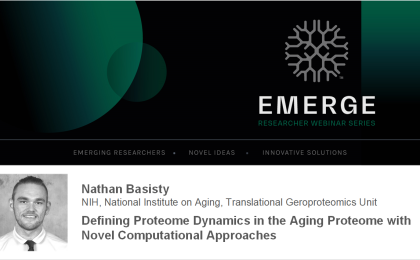
Thursday March 31 at 4 pm (Amsterdam, Berlin, Stockholm)
Defining Proteome Dynamics in the Aging Proteome with Novel Computational Approaches.
Nathan Batisty, NIH, National Institute of Aging
Thursday March 17 2022
Join Mission Bio and SciLifeLab for an interactive session about the latest advances and applications of single cell technology that simultaneously measures single-nucleotide variation (SNV), copy number variation (CNV), and protein data from the same cells.
We are happy to welcome scientists from the Clinical Genomics Uppsala presenting some of their recent work. In addition we will give a an introduction to Mission Bio’s Tapestri capabilities on SNV, CNV, and protein sequencing at scale, the workflow and its applications in oncology and cell and gene therapy.
Available on demand
Acute lymphoblastic leukemia (ALL) is an aggressive leukemia that occurs most frequently in children and is characterized by the presence of few chromosomal rearrangements and additional mutations. In this webinar, the second in a “Meet the Authors” series sponsored by Mission Bio, Jan Cools of the VIB Center for Cancer Biology in Leuven, Belgium will discuss the application of single-cell analysis to determine the clonal heterogeneity of the leukemia cells of ALL cases at diagnosis.
Dr. Cools’ lab used single-cell targeted DNA sequencing (Tapestri, Mission Bio) and single-cell RNA-sequencing (10x Genomics) to determine the clonal heterogeneity of the leukemia cells of 20 ALL cases at diagnosis and monitored the clonal evolution during chemotherapy treatment. Specifically, the lab designed a custom ALL panel and obtained accurate single-nucleotide variant and small insertion-deletion mutation calling for 305 amplicons covering 110 genes in about 4400 cells per sample and time point. Bone marrow and/or blood samples from 12 B-cell ALL and eight T-cell ALL patients were analyzed.
Dr. Cools will discuss how single-cell DNA amplicon sequencing is a sensitive assay to detect clonal architecture and evolution of the malignant cells in ALL, and present his findings published in the Blood paper, “Single-cell DNA amplicon sequencing reveals clonal heterogeneity and evolution in T-cell acute lymphoblastic leukemia.”
Laminar Wash™ enables single-cell multiomics and cell hashing in studies with limited numbers of cells
Professor Mats Bemark, Ph.D.‘s lab at the University of Gothenburg in Sweden studies how the immune system responds to respiratory infections, such as SARS-CoV-2 and influenza. His research focuses on interrogating these interactions at mucosal layers using advanced analytical methods, including flow cytometry and single-cell transcriptomics (scRNA-seq). A key to unlocking the potential of these studies is addressing sample prep challenges, particularly when starting cell numbers are limited.
Topics covered:
Get information about Laminar Wash™ for Single-Cell Sequencing
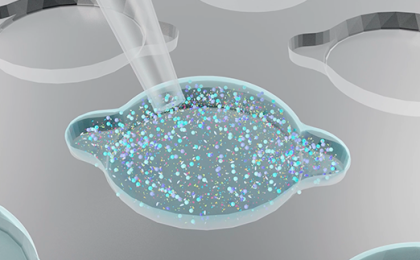
Tuesday 19th October 11 am Eastern (17:00 Copenhagen)
Thursday 21st October 9 am Central Europe live Q&A
Professor Mats Bemark, Ph.D.‘s lab at the University of Gothenburg in Sweden studies how the immune system responds to respiratory infections, such as SARS-CoV-2 and influenza. His research focuses on interrogating these interactions at mucosal layers using advanced analytical methods, including flow cytometry and single-cell transcriptomics (scRNA-seq). A key to unlocking the potential of these studies is addressing sample prep challenges, particularly when starting cell numbers are limited.
Webinar attendees will learn:
Dr. Bemark will be available for a Live Q&A on 21 October at 9AM Central Europe time (15:00 Singapore time). Please use the link below to register for the Live Q&A; we will inform you when the recording is posted to the Curiox website beforehand.
Get information about Laminar Wash™ for Single-Cell Sequencing
Thursday October 14 at 10 am (CET)
During this webinar our presenters will focus on navigating the IVDR directive and how best to tackle this new initiative. Additionally, our guest speakers will also present a valuable case which focuses specifically on the validation of a direct PCR machine utilising the Qnostics SARS-CoV-2 Analytical Q Panel.
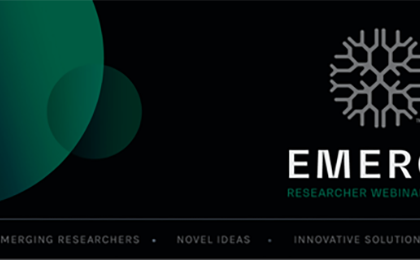
Friday October 7, 18:00 CET conference start, 21:05 CET presentation start
Florian Harking, NNF Center for Protein Research, Olsen Group, University of Copenhagen, Denmark


Julia Robbins, Genome Sciences Department, University of Washington, Seattle
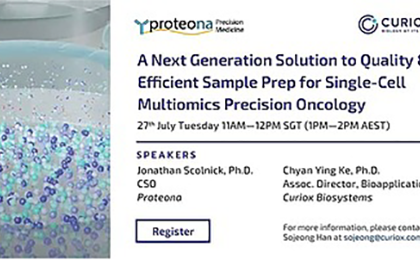
Tuesday July 27 2021, 5 am – 6 am (CEST)
Single-cell sequencing and multiomics analysis can be powerful tools across the therapy development pipeline, from discovery to diagnostics. The weak signal-to-noise inherent to these methods demands stringent and careful sample preparation, particularly when those samples come from cancer patients.
We are pleased to host Jonathan Scolnick, Ph.D., Founder and Chief Science Officer at Proteona, a precision oncology company based in Singapore. Proteona uses insights from single-cell multiomics measurements to improve cancer patient care. Joining Dr. Scolnick is Chyan Ying Ke, Ph.D., Associate Director of Bioapplications at Curiox. Dr. Ke leads the Curiox R&D team in Singapore.
Webinar attendees will learn:
– How Proteona approaches single-cell multiomics
– Insights gleaned from single-cell analysis for precision oncology
– Specific workflow challenges associated with single-cell multiomics
– How Curiox Laminar Wash™ technology addresses single-cell ‘omics sample prep
– How Curiox enables single-cell multiomics data collection at Proteona
The timing of the live event is tailored for our Asia-Pacific audience. Regardless of your time zone, we encourage all interested attendees to register, leave a question or comment in the field below, and watch the webinar on-demand shortly after its conclusion.
Get information about Laminar Wash™ for Single-Cell Sequencing
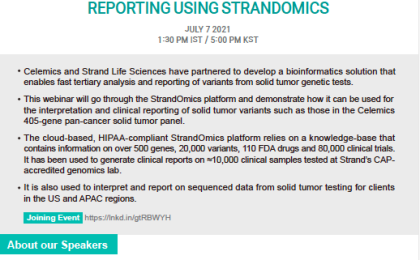
Celemics & Strand Life Sciences Bioinfomratics Solution Service

Wednesday June 30 at 17:00 CEST
High-throughput spatial-temporal proteomics for the study of phospho-signaling dynamics
Dr. Ana Martinez del Val Novo Nordisk Foundation Center for Protein Research, Denmark
Ana obtained her PhD at the Proteomics Unit in the Spanish National Cancer Research Center, where she was working on quantitative proteomics and phosphoproteomics applied to stem cell biology. In 2019 she joined the lab of Jesper Olsen at the Novo Nordisk Foundation Center for Protein Research in Copenhagen, where she is working on further applications of mass spectrometry-based proteomics to study signaling and disease.
The presentation will focus on the application of high-throughput spatial-temporal proteomics workflows for the study of phospho-signaling dynamics.
Dynamic changes in subcellular localization of signaling proteins is a general concept that eukaryotic cells evolved for eliciting a coordinated response to stimuli. Mass spectrometry-based proteomics in combination with subcellular fractionation can provide comprehensive maps of spatio-temporal regulation of cells, but involves laborious methods that did not include phospho-proteome analysis.
Ana will present a high-throughput workflow, based on sequential cell fractionation, to profile the global proteome and phospho-proteome dynamics across six distinct subcellular fractions. The workflow was benchmarked by studying spatio-temporal EGFR phospho-signaling dynamics in-vitro (HeLa cell cultures) and in-vivo in mouse tissues, and was also employed to assess the spatio-temporal events in response to stress related signaling, such as hyperosmotic shock, revealing cellular relocation of ribosomal proteins.

Wednesday June 2 at 16:00 CEST
Dr. Magnus Jakobsson, Lund university
In support of emerging researchers, we are introducing the EMERGE webinar series with a specific focus on highlighting novel methods and solutions that labs are implementing to tackle the challenges associated with applying omics technologies in a routine way.
At ReSyn Biosciences we focus on efficiency and reproducibility to develop novel workflows for biological Mass Spectrometry and Bioseparation.
Dr Jakobsson received a PhD in 2013 from Oslo University with his thesis entitled: “Characterization of novel human protein methyltransferases”, and subsequently joined the the laboratory of Dr Jesper V Olsen at the Novo Nordisk Foundation Centre for Protein Research, Copenhagen University.
Since 2019 Magnus has been based at Lund University, where he is a co-leader of the Proteoforms@LU MS platform, focusing on post translational modifications and protein variants. He is also a research group leader at the department of Immunotechnology, where his research focuses on aspects covering both basic and translational research, including the development of proteomics workflows for analysis of “orphan” PTMs, the quantitative analysis of proteins and their regulatory PTMs for developing new cancer diagnostics.

Tuesday May 25, 1 pm CEST
Following on from our successful webinar, Randox Laboratories are pleased to invite you to an online demo of our Acusera 24•7 QC Management Software.
Throughout the previous webinar, key speaker Margaret Le Roux highlighted the benefits of implementing a quality control software in a laboratory, specifically focusing on the use of sigma metrics, %bias, total error, uncertainty of measurement and other statistical reports.
An automated QC software, such as Acusera 24•7, can help to enhance performance assessment, improve QC strategy and meet regulatory requirements. This demo session aims to provide an insight to our state-of-the-art software package.
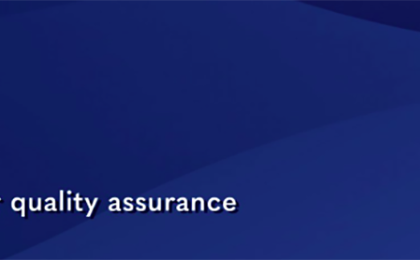
Wednesday May 26, 2 pm CEST
This educational webinar will discuss topics surrounding the importance of third party molecular Quality Control and External Quality Assessment, as well as the clinical impacts of good or poor QC management. Furthermore, Randox Molecular Product Specialists will detail our extensive product ranges of Qnostics (Molecular QC) and QCMD (Molecular EQA).
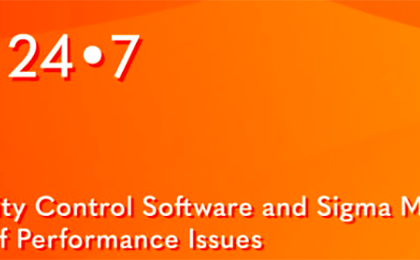
Tuesday May 18, 1 pm CEST
Acusera 24•7 is an automated QC software which helps to enhance performance assessment, improve QC strategy and meet regulatory requirements.
The webinar will specificlaly focus on the use of sigma metrics, %bias, total error, uncertainty of measurement and other statistical reports.
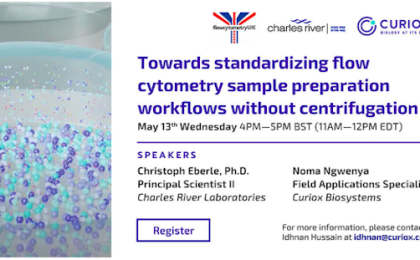
Wednesday May 13 2021
How much further along would you be if your cell and single nuclei sample prep methods were more consistent, less labor-intensive, and retained more precious material? We’ve teamed up with flowcytometryUK and Charles River Laboratories to discuss how Laminar Wash technology can help standardize, optimize, and improve cell and single nuclei suspension prep as the front-end to generating quality flow cytometry data.
Please join us live on Thursday 13 May for a webinar featuring Noma Ngwenya, Application Scientist at Curiox Biosystems, and Christoph Eberle, Ph.D., Principal Scientist II at Charles River, for an informative webinar, featuring:
Date: Wednesday May 13 2021
Time: 5:00 pm CEST
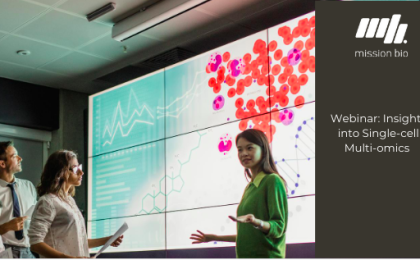
Monday April 19 at 9 am CEST
We’re delighted to be hosting a webinar with FIMM, where they tackle some of the most difficult challenges in genomic research by using information from genome sequences to advance the understanding of biology and improve health.
As a pioneer in high-throughput single-cell multi-omic analysis, Mission Bio has developed a platform to genotype and phenotype from the same cell.
During the webinar we will share:
Date: Monday, April 19, 2021
Time: 9:00 AM CET
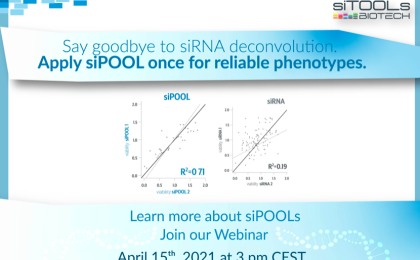
Thursday April 15 2021 at 3 pm CEST
siRNA pools (siPOOLs) are high complexity pools of 30 optimally-designed siRNAs that were demonstrated to efficiently remove off-target effects and improve reliability of results (Hannus et al., 2014).
siPOOLs are suited for use against coding or long non-coding RNAs, selected isoforms or closely-related genes, and can be applied in combination to study synergistic gene interactions (Welsbie et al., 2017).
siPOOLs are ideal tools in drug discovery for target validation and target identification with custom or ready-made siPOOL libraries.
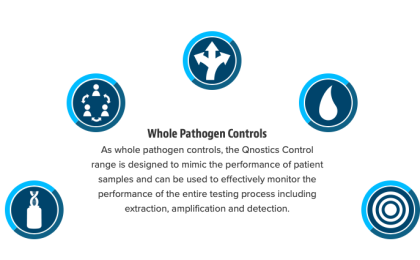
Wednesday March 24 at 10-11 am (CET)
Importance of Independent Third Party Controls
Test for the dynamic range of a molecular assay using Analytical Q Panels
Test the comparable of Methods vs Robotic systems using Molecular Q Panels
Undertake equipment validations and staff training using Medium Q Controls.
Presented by Dwaine R. Vance BSc (Hons), DIS, PhD.
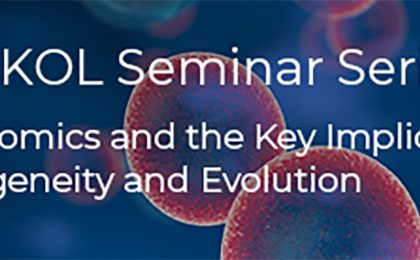
Wednesday March 10 at 10 am CET
We´re delighted to be hosting a webinar with SciLifeLab clinical Genomics Facility, where they tackle some of the most difficult challenges in genomic research by using information from genome sequences to advance the understanding of biology and improve health.
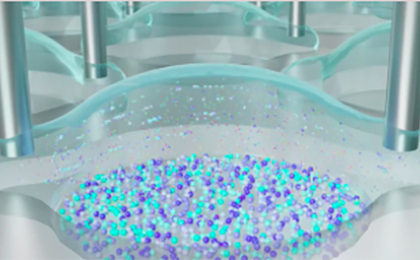
Wednesday February 24 10 am (EST)
Automating cell wash workflows with a centrifuge is challenging and expensive.
Alternatively, Laminar Wash™ technology offers a gentle, reproducible, and high-throughput alternative to preparing suspension cell samples without subjecting them to damaging gravitational forces.
Join us to find out how Laminar Wash:
Overcomes the challenges of automating sample prep
Offers several integration options to streamline your laboratory workflow
Improves cell suspension sample quality for downstream analysis
Speakers:
Malcolm Crook, PhD, Technical Director, Peak Analysis & Automation
Ann Wang, Field Application Specialist, Curiox Biosystems
Menu bar
Contact information
Follow us